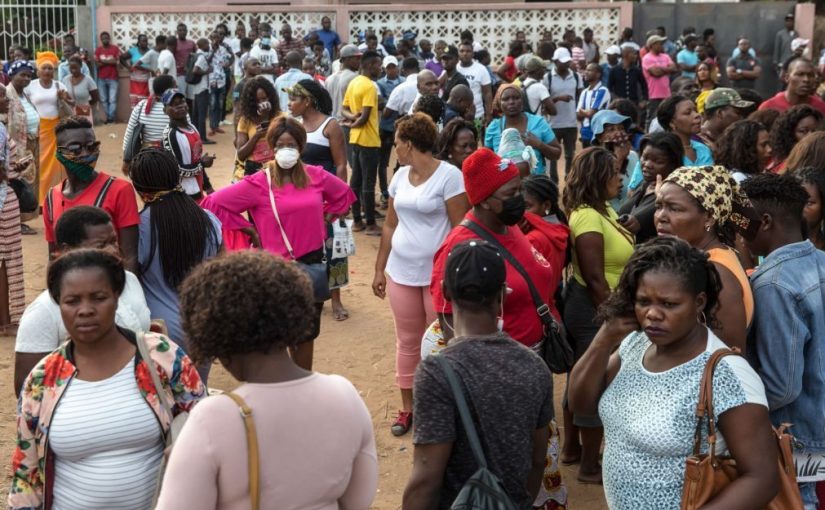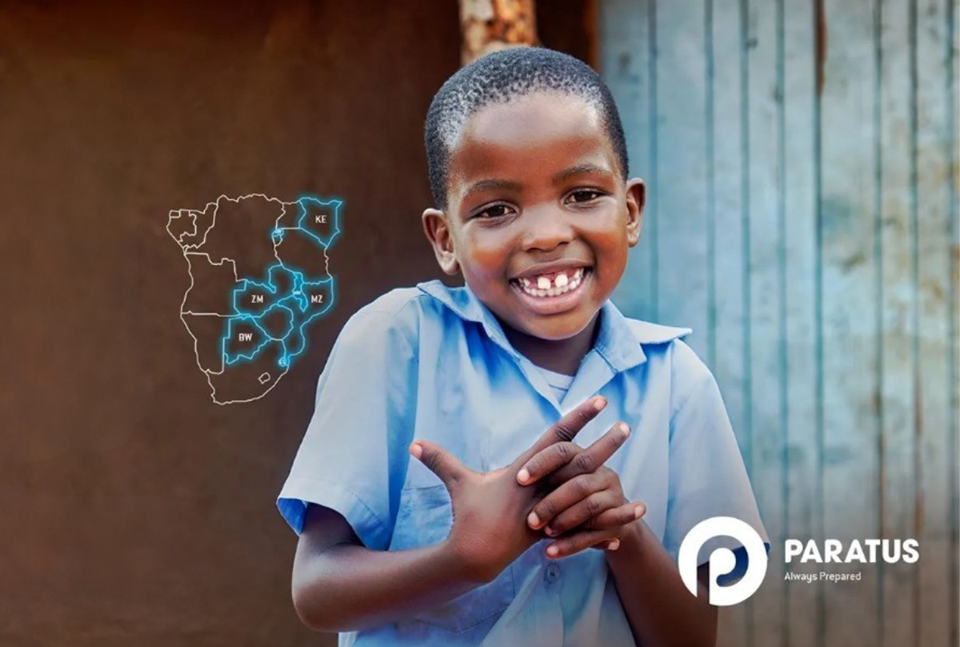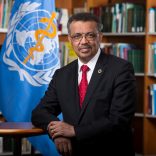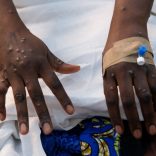Mozambique: Mpox patients escape from quarantine in Niassa
Covid-19: First day of a state of emergency full of life – Mozambique

Photo: Lusa
Cátia Jorge took to the streets to sell clothes on the sidewalks of Maputo on the first day of the state of emergency declared to fight the pandemic caused by the new coronavirus in Mozambique.
Despite the call for social distancing to contain the Covid-19 pandemic, she enters the hustle and bustle of Zimpeto informal market, saying she will face “any disease to sustain” her family.
The state of emergency has not yet imposed limitations on circulation – and will only if there is an exponential increase in coronavirus infections. Officially, Mozambique still has just eight cases, although two more confirmed cases were announced yesterday, both tested at a private clinic.
But even if there were greater restrictions, they would be difficult to enforce.
“Staying at home because of the disease will not work: my family depends on this business. I am going to challenge the disease and go out. I have to be very firm,” Cátia Jorge tells Lusa, as she sits at the Zimpeto transport terminal gate, her clothes bag lying beside her on the ground.
Living in poverty or on its threshold means that savings don’t exist for vendors here: it’s a case of “Won coin, spent coin”. You know what you’ll be eating tomorrow only once the day’s money is made.
Under the visibly disinterested eyes of the hundreds of people entering and leaving the terminal, she barks out her wares, just one of dozens of merchants crowded on the sidewalk.
“The government is trying to protect us, but we have no way of avoiding this. We depend on it,” she repeats. She’s single mother and the only provider for her family.
The distance between vendors contradicts the recommendations regarding the prevention of the disease, as well as the lack of care with which money circulates from hand to hand.
Dércia Vitorino, another informal trader on the spot, is also aware of the risks and has even taken some measures.
“I use lemon to disinfect my hands and I have gloves. I have four children and they all have to eat. We are here because there is no other place to go; we don’t have stalls,” she adds.
Inside the Zimpeto terminal, there are timid prevention measures, including mandatory hand washing for passengers and cleaning of buses, but if the new coronavirus is on the loose, the risk of it spreading increases exponentially inside the vehicles, which are almost always crowded.
This is especially the case with the ‘My Love’ open box vans, where passengers are forced to hug each other so as not to fall off.
Not far from Zimpeto, in Laulane neighbourhood, a group of informal traders from the city centre [baixa] is looking for a space in a market under construction there, in a struggle where the basic recommendations laid down by the authorities against Covid-19 infection are forgotten.
“We are all gathered here because we want stalls. We are aware of what is happening, but where we are, it is impossible to isolate ourselves. We need to earn our bread,” 32-year-old Roberto Manuel Gonçalves explains.
There is no self-imposed isolation, but Roberto knows about the suggested social distance, which seems to be more of a challenge.
Beside him stands Abel Daniel, 43, who is also looking for a space in the market. Even though he fears for his health, he has found the strength to take the risk and go out “in search of bread” to satisfy the demands of his five children.
“I depend on commerce to live and, in total, there are seven in my house. I have no alternative, I have to go to the streets in search of bread,” Abel says.
Mozambique is now in a 30-day state of emergency, with measures taken to prevent the Covid-19 pandemic overwhelming Mozambique including a ban on all social events and the closure of some establishments.
Mozambique had eight officially registered cases of the new coronavirus infection, with no deaths, when the State of Emergency was declared. President Filipe Nyusi said that the measures were proportional to the situation.
The coronavirus responsible for the Covid-19 pandemic has already infected nearly 866,000 people worldwide, of whom more than 43,000 have died.
Of those infected, at least 172,500 are considered cured.
According to the most recent statistics, the number of deaths in Africa yesterday had risen to at least 196, from a total of more than 5,700 confirmed cases across 49 countries.












Leave a Reply
Be the First to Comment!
You must be logged in to post a comment.
You must be logged in to post a comment.